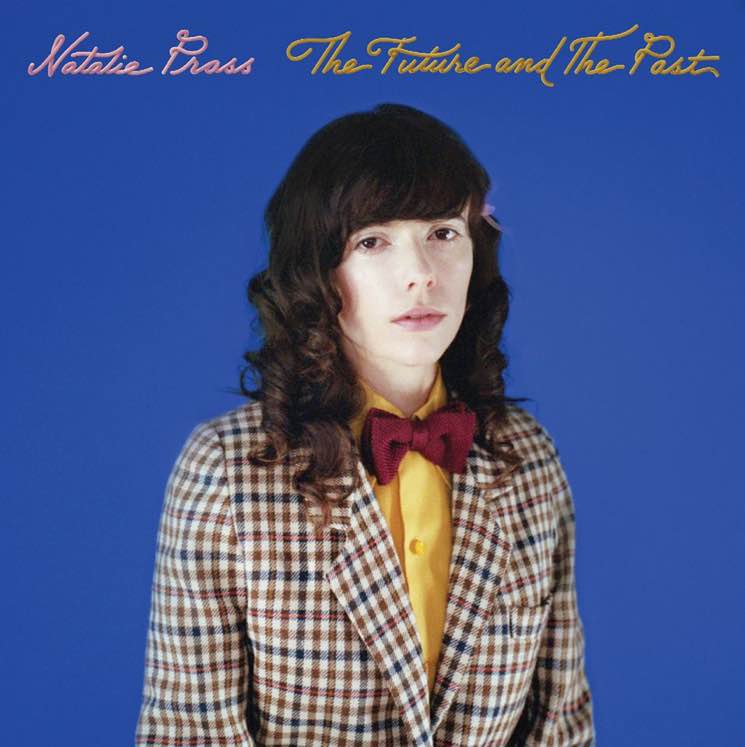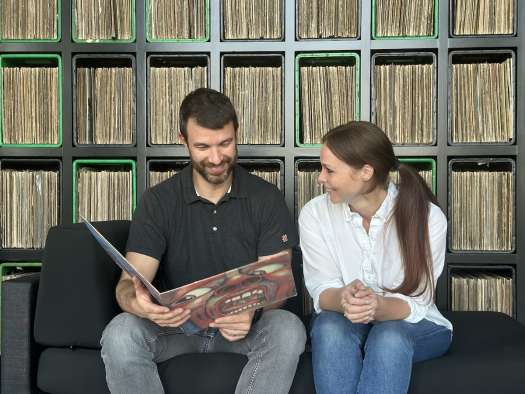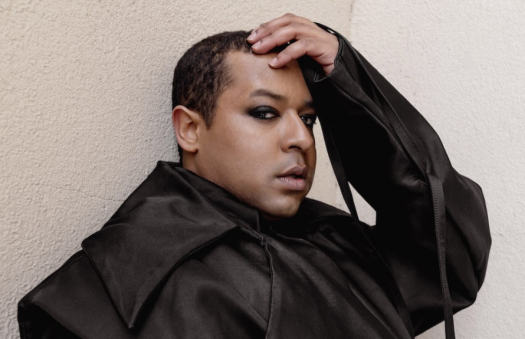Some would say love and politics are incongruous concepts. Natalie Prass says that's rubbish.
In late 2016, the Richmond, VA artist was putting the finishing touches on a batch of songs slated for inclusion on her new album. Then Donald Trump won the presidential election. Incensed and emboldened, the soft-spoken singer and songwriter scrapped a number of those tracks in favour of a clutch of new compositions that expressed her outrage.
Yet, she needed to reconcile these new, charged numbers with what remained from her original sections, songs triggered by the end of a "toxic relationship." Remarkably, the finished album, The Future and the Past, threads this needle with aplomb, revealing a far more self-assured artist than the delicate torch-balladeer we first met on her 2015 self-titled debut.
That record was a stately affair, filled with rich harmonies and sweeping strings that recalled 1950s and '60s Brill Building pop. Here though, she's quite literally found her groove, nicking pieces of '70s and '80s pop and R&B to give the tracks, performed once again by producer Matthew E. White and his Spacebomb Studio's crack house band, a bit more swing. Though they lack the natural funkiness of say, the Dap Kings, the crew once again deftly evoke the past without ever inhabiting it, creating a record that, while conceivably could exist in any moment in time, still feels modern.
The devastating "Lost," which Prass produced on her own, comes closest to her debut, and is certainly an album highlight. But it's those last-minute additions that truly stand out. In crafting songs in Trump's wake, Prass took a page from Stevie Wonder, turning hardship into joy, her sense of powerlessness into empowerment.
There are no "fuck Trump" tunes here; the mantra of "Hot for the Mountain" — "we'll take you on" — is about as aggressive as the album gets. Rather, songs like "Sisters" and "Oh My" express unity rather than anger. The goal is to bring listeners together, not push them apart.
Prass says that gospel recordings have become a regular part of her everyday listening and it shows: faith that this too can be overcome pervades the record, whether it's America's cultural divisions or a broken heart. "I am the sources of my body's choices now" she sings on closing cut "Ain't Nobody." Is she speaking to a controlling lover or her own government? It doesn't matter. "We'll take you on," sing the background singers, heard now as a reprise. "We'll take you on…"
(ATO Records)In late 2016, the Richmond, VA artist was putting the finishing touches on a batch of songs slated for inclusion on her new album. Then Donald Trump won the presidential election. Incensed and emboldened, the soft-spoken singer and songwriter scrapped a number of those tracks in favour of a clutch of new compositions that expressed her outrage.
Yet, she needed to reconcile these new, charged numbers with what remained from her original sections, songs triggered by the end of a "toxic relationship." Remarkably, the finished album, The Future and the Past, threads this needle with aplomb, revealing a far more self-assured artist than the delicate torch-balladeer we first met on her 2015 self-titled debut.
That record was a stately affair, filled with rich harmonies and sweeping strings that recalled 1950s and '60s Brill Building pop. Here though, she's quite literally found her groove, nicking pieces of '70s and '80s pop and R&B to give the tracks, performed once again by producer Matthew E. White and his Spacebomb Studio's crack house band, a bit more swing. Though they lack the natural funkiness of say, the Dap Kings, the crew once again deftly evoke the past without ever inhabiting it, creating a record that, while conceivably could exist in any moment in time, still feels modern.
The devastating "Lost," which Prass produced on her own, comes closest to her debut, and is certainly an album highlight. But it's those last-minute additions that truly stand out. In crafting songs in Trump's wake, Prass took a page from Stevie Wonder, turning hardship into joy, her sense of powerlessness into empowerment.
There are no "fuck Trump" tunes here; the mantra of "Hot for the Mountain" — "we'll take you on" — is about as aggressive as the album gets. Rather, songs like "Sisters" and "Oh My" express unity rather than anger. The goal is to bring listeners together, not push them apart.
Prass says that gospel recordings have become a regular part of her everyday listening and it shows: faith that this too can be overcome pervades the record, whether it's America's cultural divisions or a broken heart. "I am the sources of my body's choices now" she sings on closing cut "Ain't Nobody." Is she speaking to a controlling lover or her own government? It doesn't matter. "We'll take you on," sing the background singers, heard now as a reprise. "We'll take you on…"




